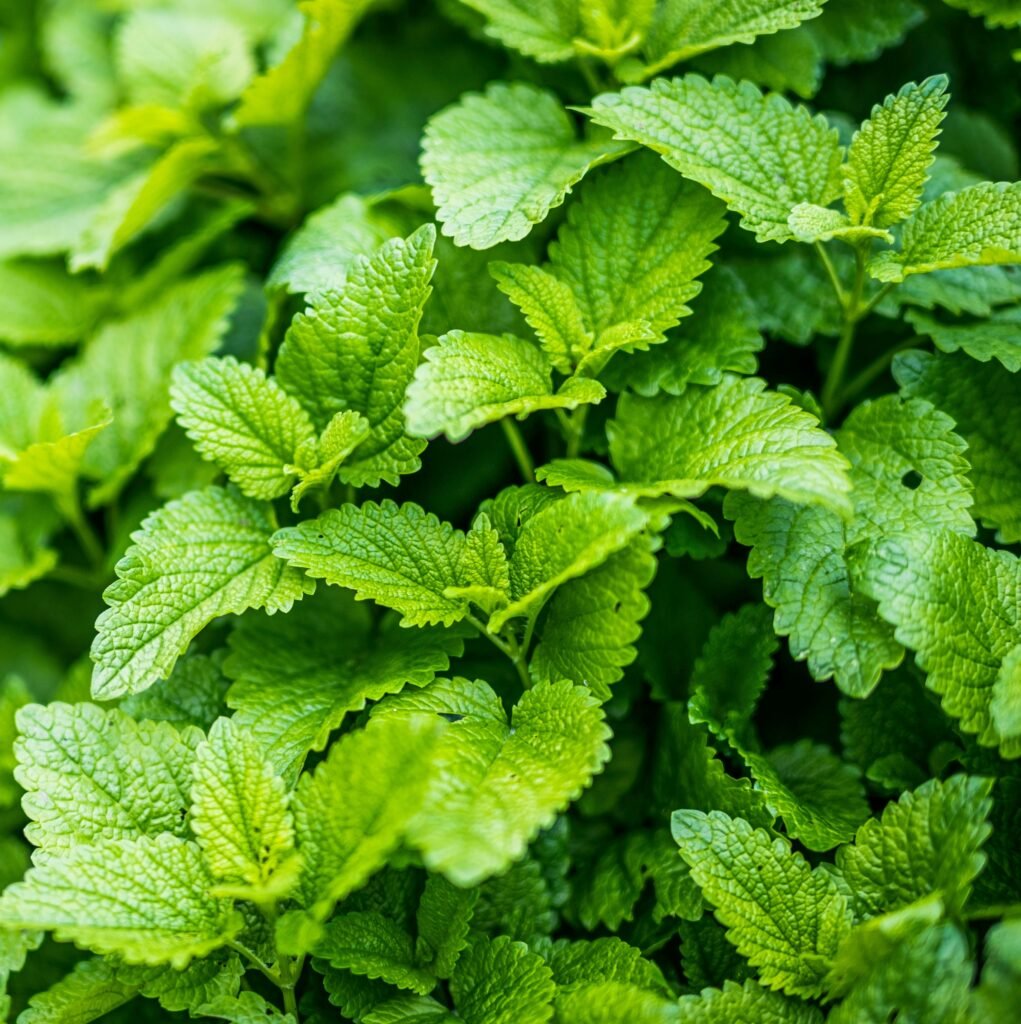Growing Lemon Balm from Seed
Lemon balm (Melissa officinalis) is a fragrant herb with a lemony scent that belongs to the mint family. It’s relatively easy to grow and makes a delightful addition to any backyard garden.
Location: Lemon balm prefers a well-drained soil and a location that receives partial shade to full sun. It can tolerate a variety of soil types but does best in moist, fertile soil. Prepare the soil by incorporating organic matter, such as compost, to improve fertility and moisture retention.
Planting: Sow them indoors in pots 6-8 weeks before the last expected frost, then transplant the seedlings outdoors after the danger of frost has passed. Space lemon balm plants about 50cm apart to allow adequate space for them to spread.
Watering: Lemon balm prefers consistently moist soil. Water the plants regularly, especially during dry spells. However, ensure that the soil drains well to prevent waterlogging. Apply a layer of mulch around the plants to help retain moisture, suppress weeds, and regulate soil temperature.
Fertilisation: Lemon balm is not a heavy feeder. You can apply a balanced, all-purpose fertiliser in the spring, but it may not be necessary if the soil is already fertile.
Pruning and harvesting: Regularly prune lemon balm to encourage bushier growth and prevent it from becoming leggy. Pinch back the tips of the stems to promote branching. Harvesting the leaves also helps keep the plant compact. You can start harvesting lemon balm leaves once the plant reaches a sufficient size. Harvesting is best done in the morning when the essential oils are most concentrated. Snip the leaves with scissors or shears.
Uses of Lemon Balm: Lemon balm leaves are commonly used in teas, salads, and various culinary dishes. The herb is also known for its calming properties and is often used in herbal remedies.
Pest and Disease Management: Lemon balm is relatively resistant to pests and diseases. However, keep an eye out for aphids and spider mites.
Companion Planting: Lemon balm is known to attract bees, making it a good companion plant for other flowering plants and vegetables that benefit from pollination.
By following these steps, you can successfully grow lemon balm in your backyard garden. Enjoy its fresh, citrusy aroma and the various culinary uses it offers.

